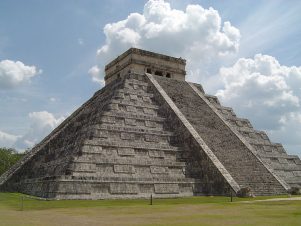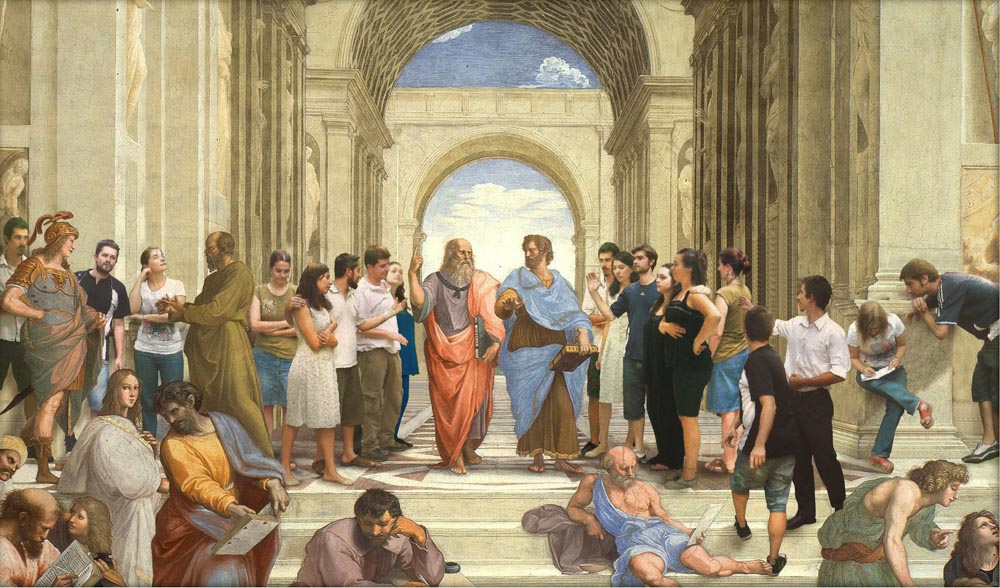Do We Need Tradition?
Article By Gilad Sommer
 The word ‘tradition’ comes from the Latin trans + dare: deliver, give across. It refers to the transmission of experience which lies at the base of every established civilization.
The word ‘tradition’ comes from the Latin trans + dare: deliver, give across. It refers to the transmission of experience which lies at the base of every established civilization.
Today, however, tradition has become a synonym of something which is old-fashioned and obsolete, nothing more than an interesting relic of the past to be put in a museum.
Nevertheless, tradition is a living and versatile force, which is not only needed, but is essential to the development and sustainability of human civilization.
Why is tradition important?
Let us look at some examples.
Parenthood, for example, is not a novelty. Thousands of generations of human parents have raised children on this planet, and yet today, every parent is required to reinvent the wheel.
Opinions on education differ from one person to another, and every few years there is a new book or method in fashion that claims to know the right formula for raising a healthy, successful and happy child. But beneath all these words, in the end, nobody knows anything for certain.
Thus, every parent tries to work with some common sense, and in general follow some learned opinion he identifies with, or just does what everyone else does.
Trial-and-error is the new style of parenthood.
But what happened to the experience of thousands of generations of parents?
Societies have come and gone, civilizations peaked and sunk under the waves of time. And yet, every politician today tries to build a society from scratch with new reforms and revolutions that will last exactly until the next politician will come with his own reforms.
Progress and change are the new leadership style, as the societies of the past are often portrayed as conservative, primitive, autocratic and ignorant.
And yet, these are the civilizations that left us the Pyramids and Stonehenge, Plato’s Republic and the Roman code of law, and even the words we use.
Where is the experience of the thousands of leaders, politicians and wise-men who led our human societies since the dawn of humanity?
Every artist today feels the need to reinvent the laws and meaning of art. Originality and innovation have become the new art style. And what do we have to show for it?
Painted urinals, twisted metal objects, unidentified mechanical noises.
And yet, people are still in awe of Michaelangelo’s David, the Pharaon statues of Luxor and the Greek Parthenon, hundreds and thousands of years after their creation.
Where will Duchamp’s toilets or Jackson Pollock’s so-called masterpieces be in a few hundreds of years from now?
Where then is the experience of the thousands of artists and geniuses who have transmitted the archetype of beauty for generations and generations?
When one travels from one place to the other, it is very useful to have a map charted by past individuals who have already crossed the same route.
This does not mean that the people of the past knew everything, and that we should stick to old forms, regardless of their usefulness or relevance. But we should also not throw away everything the past holds in store, for the sake of doing it our way. Those who are adventurou will always find uncharted paths to discover.
Life is about balance. Neither innovation at all costs nor conservation at all costs is beneficial. With intelligent discernment we can extract the useful and the wise from the past, and make it a part of our present and future, because what is wise is always wise.
Tradition is like the layers of the pyramid of human civilization, built by the bricks of experience; it would be smart to use it as a base for the new layers our generation is tasked to build.
Otherwise, we not only belittle the efforts made by those who came before us, but we will also not leave anything worthwhile to those who will come after us.
Image Credits: BY Juan Carlos Garcia | Wikimedia Commons | CC BY-SA 3.0
The entity posting this article assumes the responsibility that images used in this article have the requisite permissionsImage References
By Juan Carlos Garcia | Wikimedia Commons | CC BY-SA 3.0
Permissions required for the publishing of this article have been obtained




Excellent.